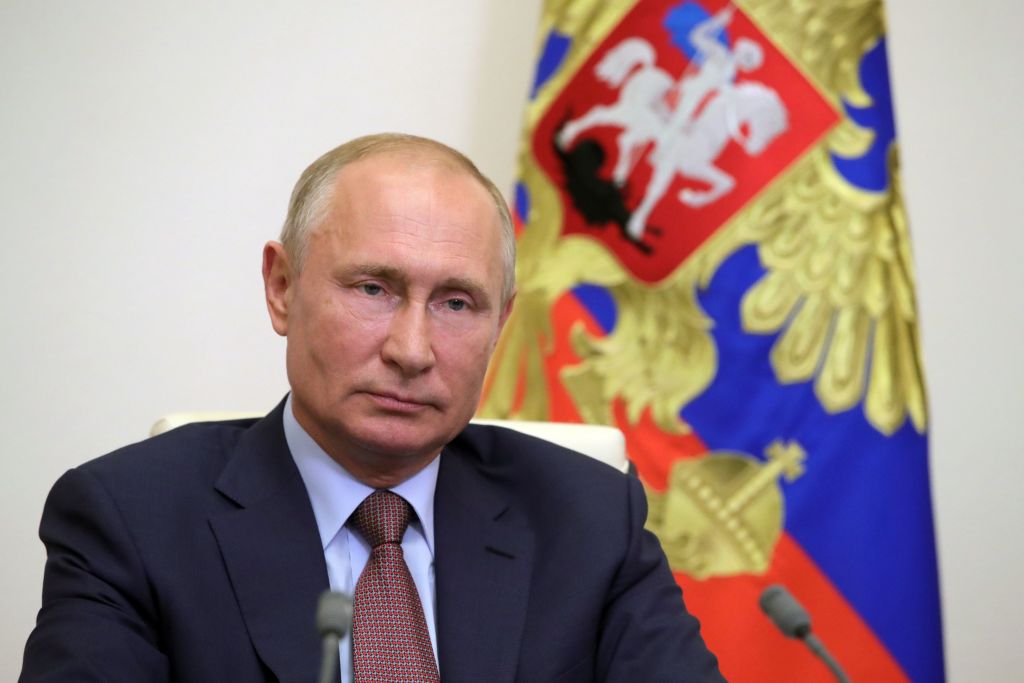It’s rare for a Government minister to make an announcement that is universally welcomed in the House of Commons. But that’s exactly what happened on Monday, when the foreign secretary Dominic Raab introduced long-awaited sanctions against human-rights abusers. Raab’s announcement appeared on the Commons’ Order Paper under the rather mundane title ‘Introduction of the Global Human Rights sanctions regime’, but what he said will have far-reaching consequences.
The measures Raab announced include asset freezes and travel bans against individuals who not only commit human-rights abuses but also those who benefit and profit from them. The names of such individuals will be made public, in a so-called ‘Magnitsky List’. The measures mean, in Raab’s words, that ‘Those with blood on their hands won’t be free … to waltz into this country, to buy up property on the Kings Road, do their Christmas shopping in Knightsbridge, or siphon dirty money through British banks.’
The measures are named after Sergei Magnitsky, a Russian accountant and auditor who in 2008 uncovered a $230 million (£150 million) theft from the Russian state that was sanctioned and carried out by officials from the country’s interior ministry. When Magnitsky went public with his allegations, the very people whose crimes he had uncovered arrested and imprisoned him. He died in Moscow’s Matrosskaya Tishina Prison on 16 November 2009, having been tortured and denied medical treatment.
The Kremlin’s Achilles’ heel is its dependence on the Western financial system
In the years since, Magnitsky’s boss, the businessman-turned-human rights activist Bill Browder, has fought a tireless campaign to get justice. In 2012, President Obama signed into law the so-called ‘Magnitsky Bill’, which barred Russian officials involved in Magnitsky’s death from entering the US or using its banking system. In 2016, the scope of the bill was extended to include human rights abusers from every country. Canada passed similar legislation in 2017.
Yet, for years successive UK governments argued that such sanctions weren’t necessary. The UK, the argument went, already possessed the ability to stop individuals entering the country on human rights grounds – or any grounds, for that matter. But this argument was weak and made the UK appear hypocritical. Instead of stopping human rights abusers from entering the UK, we provided a haven for them – and their money. The City welcomed abusers with open arms. So too did accountants, financiers, lawyers, estate agents and PR firms.
And then the Brexit vote happened, and voices from across the political spectrum scrambled to make the argument that the UK would now – finally – be able to determine its own sanctions regime and no longer be obliged to follow that of the European Union. (Forgetting, or overlooking, that Estonia, Latvia, and Lithuania are all members of the EU and have their own Magnitsky Lists.) The passage of the 2018 Sanctions and Anti-Money Laundering Act set the stage for the change, with the Government supporting a Magnitsky Amendment to the Bill following cross-party support.
Of the 49 individuals and organisations included in the UK’s first designations on the Magnitsky List, 25 are Russians. They include officials from the interior ministry, who are accused of attempted to cover up Magnitsky’s murder, and prison doctors who allegedly refused Magnitsky medical treatment. It also includes Alexander Bastrykin, head of the powerful Investigative Committee and a long-time friend of Vladimir Putin. Bastrykin is accused, by the Foreign Office, of acting ‘intentionally or recklessly’ in failing to investigative Magnitsky’s mistreatment.
Bastrykin’s inclusion is likely to infuriate the Kremlin, and the Russian Embassy has already threatened that Moscow will ‘respond to today’s unfriendly decision by the UK on the basis of reciprocity.’ Yet, it is difficult to see precisely what Moscow could do to make its relations with London worse. Besides, Russia’s behaviour is rarely predictable and rarer still proportionate. In response to the United States’ adoption of its Magnitsky Bill in 2012, the Kremlin banned Americans from adopting Russian orphans.
‘Magnitsky Lists’ elicit such a response from Russia because the Kremlin’s Achilles’ heel is its dependence on the Western financial system. Its elite uses capital markets and payment systems to launder their loot and legitimise their ill-gotten wealth. These sanctions raise the cost of facilitating the creation of an authoritarian kleptocracy, and bring home to human-rights abusers the consequences of their actions.
The Kremlin has long claimed that Magnitsky sanctions are anti-Russian or otherwise motivated by Russophobia. But such claims are nonsense. In addition to the 25 Russians involved in the death of Magnitsky, also included in the first list of designations are 20 Saudi nationals linked to the murder and dismemberment of Jamal Khashoggi, two high-ranking generals implicated in the systemic killing of Rohingyas in Myanmar, and two organisations using forced labour in North Korea.
True, the individuals included on the Magnitsky List represent low-hanging fruit, or the perpetrators of ‘some of the most notorious human rights violations in recent years’ to quote Raab. There are clear omissions, including Chinese officials involved in the repressions in Hong Kong, Tibet, Xinjiang, and elsewhere. But Raab, who championed the adoption of a UK Magnitsky List as early as 2012, deserves his moment in the sun. So too does Chris Bryant, who was the first MP to call for such legislation, back in December 2010.






Comments